AUKUS military alliance “Trumps” France
Australia, the United Kingdom and the United States, have formed a new military alliance called AUKUS, under the pretext of boosting security and stability in the Indo-Pacific.
But is this actually beneficial for the region, or an imperialist project that could lead to a dangerous escalation with China? The trilateral agreement would see Australia acquire cruise missiles and nuclear submarines, while ramping up America’s already vast military presence in the region.
While this agreement has been marketed as a defense pact, there are many who feel that Australia is giving much more than its receiving, conceding much of its territorial, political and military sovereignty to the United States.
Australia, the United Kingdom and the United States have formed a new military alliance called AUKUS, as part of this alliance Australia will receive new missiles and a fleet of nuclear submarines, built by the US and UK.
Meanwhile, the United States will increase its military presence and operational capability in the region. This pact has angered France which lost out on a contract to build diesel submarines for Australia.
It's also been condemned by China, which views this increased militarization and build up of foreign troops in the region as a threat.
So what exactly is AUKUS? Is it really about promoting regional peace and stability in the Indo Pacific or part of a larger power struggle, seeking to provoke China and project Western influence?
On the 15th of September the Prime Ministers of Australia and the United Kingdom, Scott Morrison and Boris Johnson, along with the President of the United States, Joe Biden, issued a joint statement announcing a new military partnership between their three countries called, AUKUS.
As part of this trilateral agreement Australia would receive a fleet of nuclear powered submarines. These would be built in Adelaide in South Australia with the help of the UK and the US.
Australia confirmed that it would also be acquiring Tomahawk cruise missiles and joint air to surface standoff missiles from the US.
In exchange, the United States will expand its already giant military footprint in Australia. The United States and Australia already have very close ties being two of the five eyes members, along with the UK, Canada and New Zealand.
The US already has several military bases and around 2500 Marines on permanent rotation in Australia. In addition to its own basis, the Asia Pacific journal writes that "the US military has access to all major Australian Defence Forces training areas, Northern Australian Royal Air Force airfields, port facilities in Darwin and Fremantle.
With AUKUS, those numbers would increase, as would the types of ordinances, as Peter Dutton, the Australian Defence minister, confirmed during a press conference.
He went on to say that “Australia and the United States will be significantly enhancing their cooperation, increasing interoperability and deepening Alliance activities in the Indo Pacific. This will include greater air cooperation through rotational deployments of all types of US military aircraft to Australia".
While this agreement has been marketed as a defense pact, there are many who feel that Australia is giving much more than its receiving, conceding much of its territorial, political, and military, sovereignty to the United States, and nothing could be more emblematic of Australian subservience to the United States than US President Joe Biden forgetting the Australian Prime Minister's name, Scott Morrison, During the unveiling of AUKUS.
Thank you, Boris. I want to thank that fellow down under. Thank you very much, pal.
US President, Joe Biden
Besides not being able to say the name of the Australian Prime Minister, neither Biden, nor Johnson or Morrison, actually mentioned China by name. If you watch their full speeches, you will only hear them say the Indo Pacific,
The Indo Pacific
Scott Morrison, Australia, PM
The Indo Pacific
Boris Johnson, UK, PM
You all recognize the imperative of ensuring peace and stability in the Indo Pacific over the long term.
US President, Joe Biden
It's no secret that this entire thing is aimed at China, this is China's region after all, and the West has been fear mongering about them for years.
Reacting to this, the spokesperson for the Chinese Foreign Ministry, Zhao Lijian, said that "This severely undermines regional peace, stability, intensifies arms race, and undercuts international Non Proliferation efforts. It's highly irresponsible and shows double standards on using nuclear export for geopolitical games”.
What has China done that is so bad that these three countries trying to gang up against it? This excerpt from CNN might have some of the answers.
The trade routes that we use on the open seas need to be protected in the US and Australian and UK view, they need to be protected by our collective forces in order to make sure that no other Navy can interfere with the trade routes as they exist right now so that means any oil, for example, that comes from the Middle East, any raw materials that come from Africa, things that China depends on a great deal.
Colonel Cedric Leighton, US Air Force, Retired
Have they been doing that, have the Chinese been stopping those trade routes?
CNN Host
Not yet, but the fear is that they could.
Colonel Cedric Leighton, US Air Force, Retired
There you go. You heard it straight from the horse's mouth, the colonel here is plainly saying China hasn't done anything, and more importantly he's revealing the real reason behind all this. It's all about economic interests, it's about controlling shipping lanes, trade routes, oil and other natural resources, near China.
Let’s not forget that China is the world's largest manufacturing country. Countering China is phrase they use all the time but what does it mean? Why does China need to be countered?
America has numerous military bases already surrounding China and not the other way around. And what is the United Kingdom doing on the other side of the planet?
Do they not know that China is Australia's largest trading partner? Why should Australia sour relations with Peking at the behest of Washington? Just to satisfy America's foreign policy goals?
Perhaps this is more to do with the West feeling nervous that China has a stronger, faster growing economic model.
China is on track to overtake the US and become the world's largest economy. China has the Belt and Road Initiative, a modern revival of the Silk Road trade route. It just recently integrated Iran into it, among many other countries.
China doesn't go around bombing other places to steal their resources.
China has lifted millions of its own citizens out of poverty. It has a different mindset, a different social and economic system from the US and Australia seems to be losing its sovereignty, essentially becoming a giant airbase for the American Armed Forces.
Australia says it's non nuclear, but will the United States respect that? Who is to say they won't keep nuclear missiles on Australian soil in secret?
Does the US view Australia as expendable, perhaps just as a vassal state that it can exploit for its imperialist ambitions in a potential confrontation with China?
Dr. Alan Patience, an honorary Principal Fellow in the School of Social and Political Sciences at the University of Melbourne, has taught political and Asian Studies at universities in Australia and Japan, and has occupied visiting professorships in China, Taiwan, Burma, and Papua New Guinea. His work focuses on Australian foreign policy.
Professor you recently wrote that Australia is repeating certain foreign policy and defense mistakes from the last century; could you elaborate on those mistakes for us, please?
Well I was referring, in that case to the 1919 peace conference in Paris after World War One. The Australian representative was our prime minister at the time, Mr. Billy Hughes, who was one of the leading architects of what was called the White Australia Policy. He was an out and out racist, and particularly disliked Asian people.
The Japanese, of course, were represented at the Peace Conference in a quite significant delegation. They made some proposals that upset the Australian Prime Minister.
The first proposal was that all German territories in the Pacific should be encouraged and helped by Australia and Japan together towards independence, to end colonialism and German colonies.
And the second proposal that the Japanese made was that the new charter for the League of Nations, which was being formed at much the same time, should have an anti racist clause in its charter.
Now, Billy Hughes was absolutely horrified at these two suggestions. He opposed them bitterly. He was extremely rude in the conference proceedings, used to put his foot up on the table and shout and just gesticulate, particularly at the Japanese, telling them off.
And as a result, the Japanese first of all, were humiliated at that conference, eventually they withdrew from the League of Nations, and certainly that was a contribution to the enmity that was created between Japan and Australia. In World War Two, In the Pacific theatre.
And what I was trying to suggest is that Scott Morrison, our present Prime Minister, is doing exactly the same thing. He's now being very rude about China, in a number of international forums and provoking China's hostility. So I think history is repeating itself.
Dr Alan Patience, Melbourne University
When it comes to Australia and what Australia has to gain from all this, these nuclear submarines. It is said they won't be arriving anytime soon, as a matter of fact, we've heard the year 2040 being floated around.
So if Australia has to wait two decades for these submarines, what exactly are America and the UK gaining in the meantime from this partnership with Australia, especially in terms of being able to use Australian territory?
First of all, I think it's important to note that the, there is no submarine at the moment, all there is, is a promise that nuclear power will be made available for whatever submarines chosen in a timeframe of the next 18 months, so it's still a fantasy. It's, it's not a reality at all. But what will the Americans, achieve? Well, for a long time now Australia's military capacity, defense capacity, has been "interoperable" with the United States military.
That is to say, we are really just a very small part of the US military and defense arrangements in the Asia Pacific region. This now consolidates that relationship, as far as the Americans are concerned, there's been some talk emerging in Australia, particularly during the time of Trump's presidency, that maybe we can't rely on America, any longer.
And that's a feeling that's been growing, and the Americans want to counter this, and they have come in now with this proposal, and that's what, and at the same time. And by the way the concerns about America's reliability, we've had one former Prime Minister, for example, saying that it's time to rip up the alliance with the United States, and that would mean, amongst other things, kicking Pine Gap, which is a huge American spy base in the middle of Australia, that's been spying on China and other eastern and Southeast Asian countries, getting rid of that, for example, and that would really remove a major part of the US intelligence capacity, our gathering capacity, in this region.
So America, in pushing us into this arrangement, if you like, is consolidating its grip on Australia's sovereignty very strongly.
As far as the British are concerned, I think it's just Empire nostalgia, they still think of Australia as a colony, and in many respects, we still are for the British. They might get one of these submarines selected but it's very unlikely. I'm sure it'll be a very good submarine.
Dr Alan Patience, Melbourne University
You mentioned Australian sovereignty. What does AUKUS entail exactly for Australia's sovereignty, what does it get out of this colonial mindset?
I think it's important to note that in international politics, international relations, Australia styles itself as a middle power, a so called middle power. I've argued elsewhere, that there are different kinds of middle powers, but the kind of middle power that Australia is, is as a dependent middle power, it's claims to have a kind of middle power status are entirely reliant on its alliances with big powers, and in this case the United States.
So already, as a dependent middle power, Australia's sovereignty has been severely constrained. As the former prime minister, and I was referring to earlier Malcolm Fraser, he was a Conservative Prime Minister, by the way, who's saying let's get rid of the American Alliance.
And he was saying, look, Australia has very little sovereignty and AUKUS, as they call this strange arrangement, is yet further evidence that we are very lacking in sovereignty, that we will do, will always do, as we're told, and that's evident.
For example, Australia has been into every single war that the United States has had since the end of World War Two, but during World War Two as well, participating in every single war; the Korea Peninsular War, Vietnam, Afghanistan, Iraq, and so on. It's quite extraordinary. In many respects, we're a very warmongering country very keen to be with America in its wars.
Dr Alan Patience, Melbourne University
AUKUS has caused a real diplomatic row with the French. France is actually very upset with all this, not because Western imperialists are antagonizing China, but because they didn't get the contracts and the money to help do it.
France had a deal worth 90 billion Australian dollars to build Diesel Powered submarines for Australia. Without informing the French, Scott Morrison, just went and ripped up the contract and entered Australia into this new alliance instead with the US in the UK.
Mr Morrison must have reached the conclusion that American nuclear powered submarines would be much better. France, of course considers this to be a real stab in the back, and is so angry it pulled out of a preplanned ceremony with the US commemorating the 240th anniversary of the Battle of Cape.
French President Emmanuel Macron said that it's important for Europe to stop being naive and assert its independence from the United States, the French are so outraged that the Defence Minister pulled out of talks with the UK and, in an unprecedented move, France even recalled its ambassadors to Australia and the US.
Bruce Haigh is an Australian political commentator, author and former diplomat. He served in several countries, first in South Africa, where he made friends with anti apartheid activists, and even helped some of them escape the country. He also served in Afghanistan, Iran, Indonesia, Pakistan, Saudi Arabia, and Sri Lanka.
How does AUKUS, and the resultant diplomatic fallout that's resulted from it, impact the Franco-Australian relationship?
That's a good question because the French are quite influential, as you know, in Europe, Britain's out of it, much to everybody's delight, I would hope, and think, but in its present form, I mean Britain, still hasn't had the social revolutions that it needs; It's still a hugely unequal society and racist to boot.
But France has got considerable influence in Europe, and it will bring that influence to bear. Merkel's about to go, we don't know who will replace her, but whoever replaces her will not have the experience that Merkel had, so, Macron is now a senior statesperson in Europe.
And he's, he's really angry, so I can't imagine that the trade deal that was being drawn up will happen. It'll, it'll be pushed to one side, and it won't be revised, I don't think, until Morrison's government has been voted out of office in Australia.
Bruce Haigh, Former Australian Diplomat
So we know that they didn't tell the French about their plans to rip up this deal. Could you tell us who else was left in the dark in the Australian Government, the Australian Defence Forces, because there were also other people in Australia, who didn't know about this, is that correct?
Yes, that's certainly it seems that way, it would seem that this is a deal that's been done between people in the United States, or people around Biden, and Morrison and some of his staff members, but it seems, and maybe it includes the Minister for Defence, but it seems that it didn't include the Department of Defence because they wrote a letter to the French which the French received on the same day that the Australians broke the contract.
So, to me, officials within our department of defense were not in the loop. They don't know the cost. I mean this is this, when you're spending 85 to 100 billion of taxpayers’ money on an item as large as this, you would normally go out to contract and say look I need the lead in time with the French would be over a period of six months or a year of saying, look, we're going to have to break this contract and discuss the terms of breaking the contract and all those sorts of things, so that you didn't upset the French.
So the submarines deal, they're saying we wouldn't get the submarines until 2040, at the earliest and maybe 2050, which to me means that the submarine deal isn't the real deal at all, It's a smokescreen in order to get the United States into Australia and get their nuclear submarines based in Fremantle, to Garden Island and in the Northern Territory, perhaps build another port, yet there are still bombers and B 52s permanently based in Tyndall Air Force Base in the north, and maybe build some other bases in northern Australia.
Bruce Haigh, Former Australian Diplomat
So, what are the motivations behind AUKUS, why this pact, at this point in time, with these three countries?
The Americans are getting increasingly worried, they've got themselves into a mindset, they are paranoid, and they are feeding off their own hysteria about China. So they've got themselves into a mindset that they need to act very, very, quickly, so they came up with this idea of dumping the French and this submarine deal, pushing the French out of, or marginalizing the French in the Pacific, giving the primary role to the US.
Johnson is just a hanger on in all of this, he is trying to get some British glory day back after the mess up of Brexit and it's a complete mess. So Johnson is a hanger-on, and America is now happy enough to have Johnson hanging on, but wants Australia as a base for its naval assets, and for (the) army.
I don't know what they're going to use the army for; to occupy the islands in the South China Sea? But I mean, they just want a presence in Australia, an increased military presence, and that increased military presence will give them greater control over the Australian political process.
So AUKUS is really about the Americans wanting to use Australia, as they did in the Second World War, as a kind of a large aircraft carrier, and give some legitimacy to what they're on about which is confronting China because of their fear of China's rivalry.
Bruce Haigh, Former Australian Diplomat
Australia's largest trading partner is China. So Australia needs China, and yet we have this odd behavior from the United States, pushing Australia into confrontation.
So how does this affect the relationship with China and how have the Chinese and other countries and territories in the Indo Pacific reacted to this pact?
Well, in Southeast Asia they, other countries are not at all happy they, they haven't expressed themselves forcefully in public, but behind the scenes they're very angry and concerned. China of course is, they won't deal with Morrison, and they won't deal with his government, Morrison doesn't have any life experience, he is unable to process these sorts of relationships, he hasn't got a clue. China is now being referred to by within circles in Australia but certainly by the Americans but we've picked up; they are the enemy.
So, you know, we're referring to our major trading partner, as the enemy. I don't even begin to understand the logic of that from Australia's point of view. China's not going anywhere and neither are we.
As much as we'd like to sit offshore from America, it's not going to happen, we're firmly grounded here at the bottom of Asia, and that's our future and that's our destiny.
And China is China, and it's going to be there, and it's going to continue to influence the states around it in the Pacific, and, and in the region. Countries are going to pick up with Belt and road, and they're going to want the infrastructure that China's providing and promising.
Bruce Haigh, Former Australian Diplomat
Despite the claim that AUKUS will boost peace and stability in the region, it already seems to be achieving the opposite.
China will perceive a heightened presence of a foreign military as a threat, just like any country would and naturally want to defend itself.
Having more British American and Australian forces trying to provoke China is only going to escalate things and maybe lead to an arms race, or worse, a military confrontation.
The Americans said they would bring peace and stability to the Middle East and we all know how that turned out.
You know America and Britain, they just go park fleets of warships, they fly Nuclear Bombers on Iran doorstep, or in this case, China's doorstep, and then talk about countering China as if China is the one camped out in the Florida Keys.
Just imagine the reaction if China put its warships in the English Channel, or off the coast of California, they would lose it. Just look at the response when the Soviet Union put missiles in Cuba in 1962, they're still talking about it to this day.
One should bear in mind that China isn't the one who just pulled out of Afghanistan after occupying it for 20 years; China didn't commit war crimes in Iraq or Libya. China doesn't have 800 military bases around the world.
China, offers a different economic model, an alternative way of doing things, that doesn't involve aggression and imperialism.
China's way of doing things is based on agreement and cooperation and Peking is soon to become the world's largest economic power.
Australia has always clung to Uncle Sam's coattails and needs the Unites States to feel that it can project a certain degree of power.
The United Kingdom longs for the old days of its empire and wants to appear relevant after Brexit, which is why they formed AUKUS.
As for America, after Afghanistan, America needs a new enemy to justify its $740 billion military budget, and to keep expanding its empire, and ensure corporate profits.
This is the crux of the issue, capitalists and imperialists hate competition. They want to monopolize, they want to assert dominance and control over every market, every situation.
And in the great power struggle between the West and China, the West is scared.
Not because China actually poses a threat, but because China proposes an alternate way of doing things, and is able to rival them through a different economic model making theirs look outdated, weak and obsolete.
D-8’s role in Iran’s economy after Cairo summit
China slams US as ‘war-addicted’ threat to global security
China ‘firmly opposes’ US military aid to Taiwan
VIDEO | Press TV's News Headlines
President Yoon Suk Yeol to be removed from office
At least 19 Gazans killed by Israeli airstrikes since dawn: Medics
Leader: Iran neither has nor needs proxy forces
US fighter aircraft shot down ‘in friendly fire’ amid aggression on Yemen


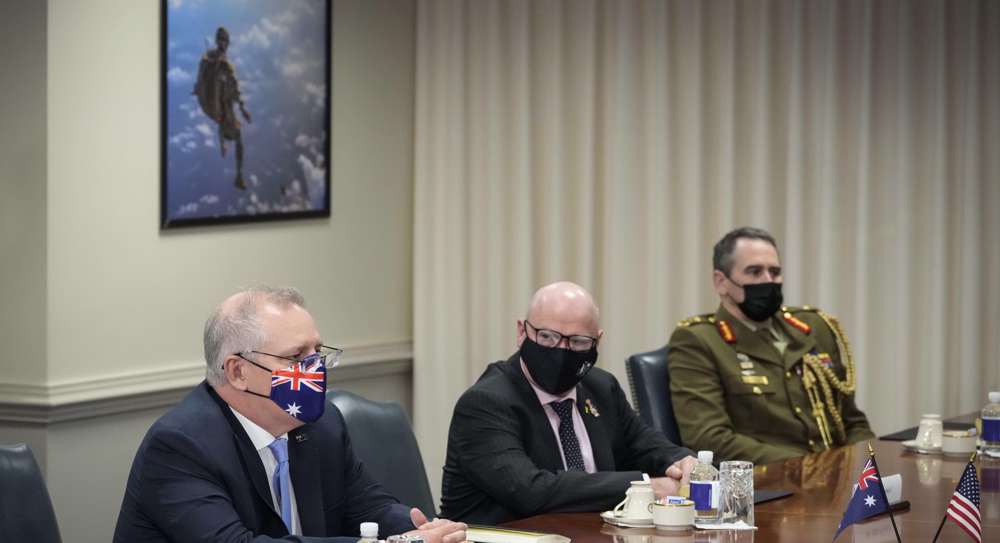
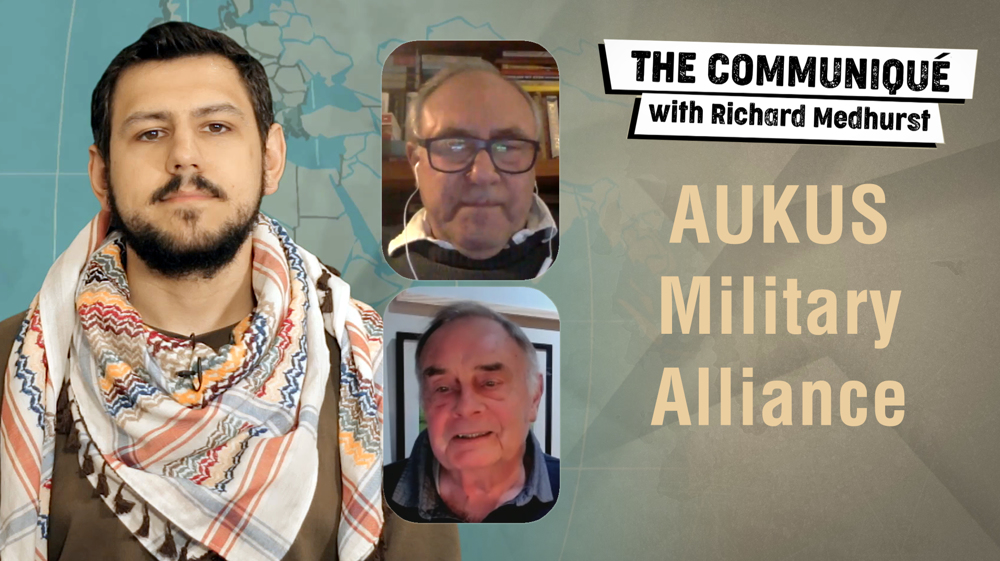
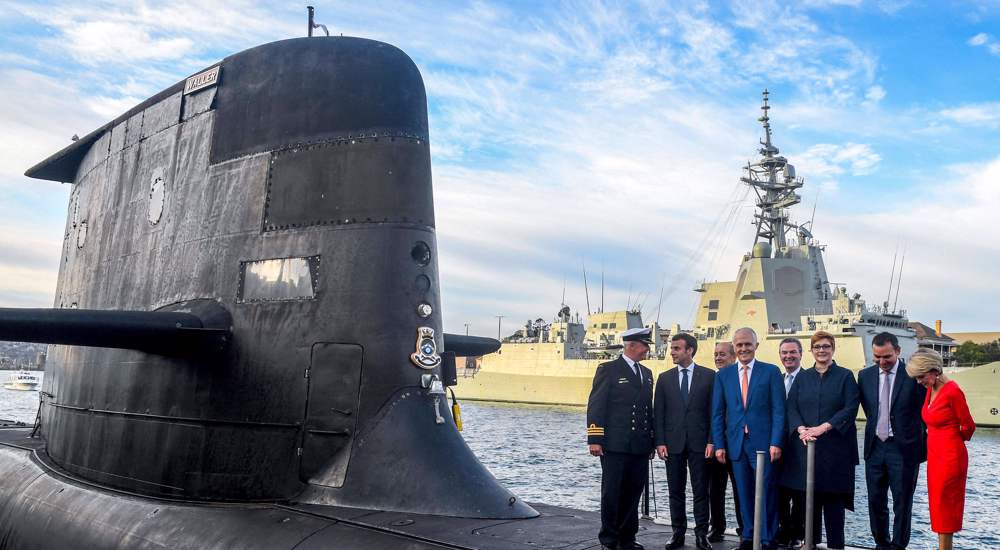
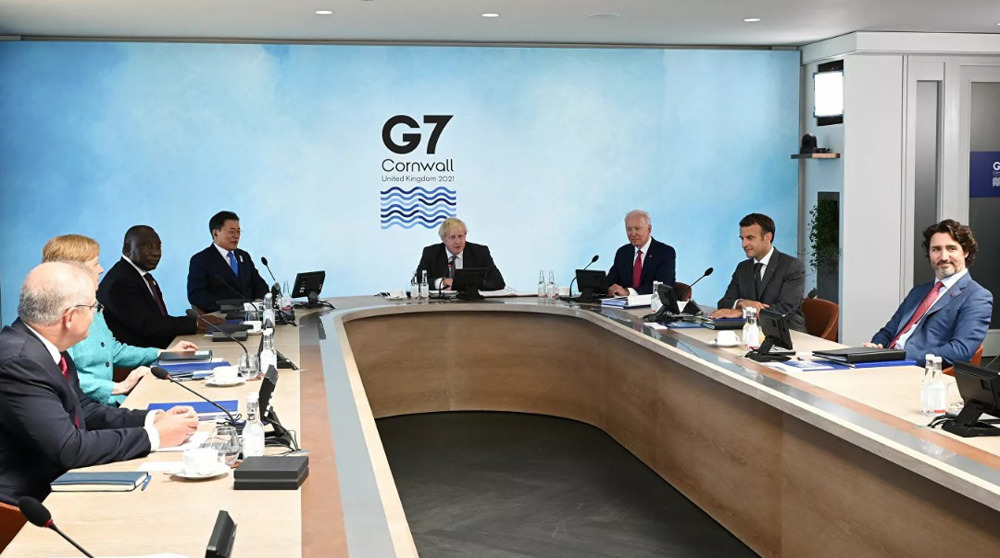
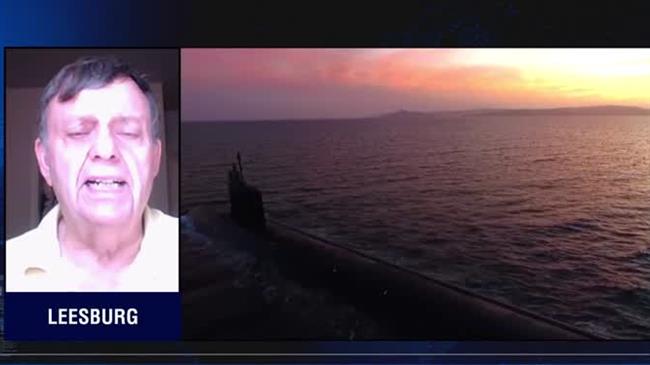
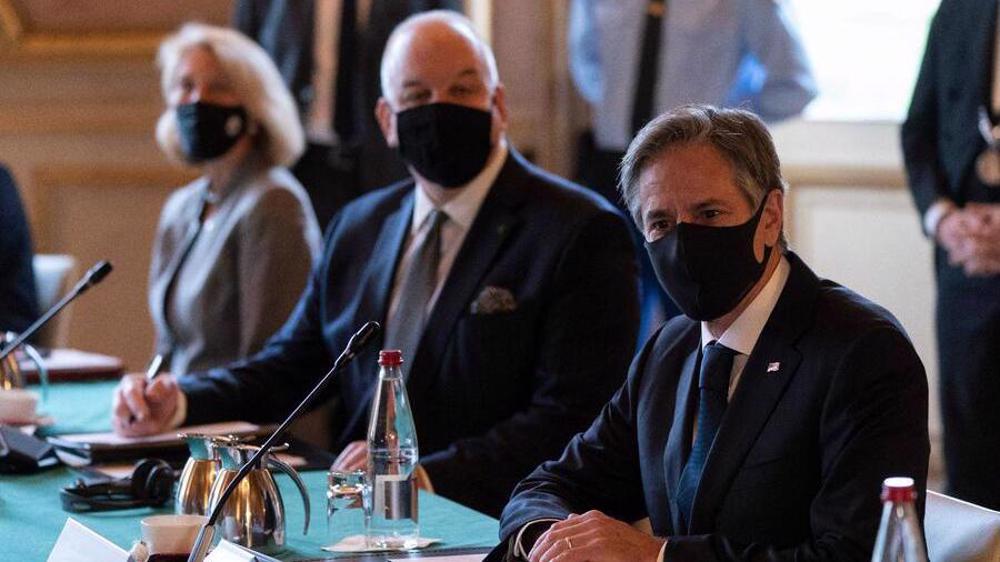
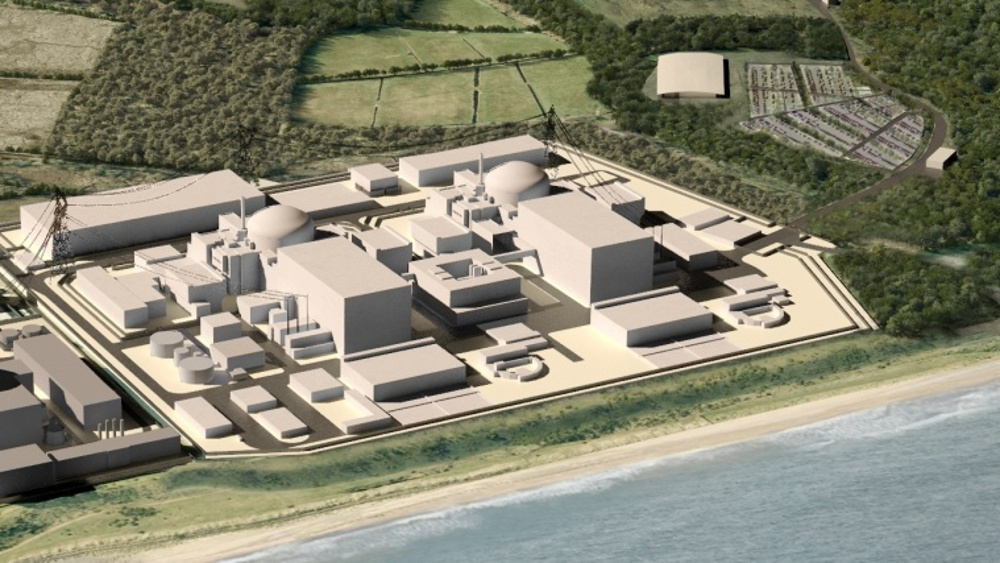

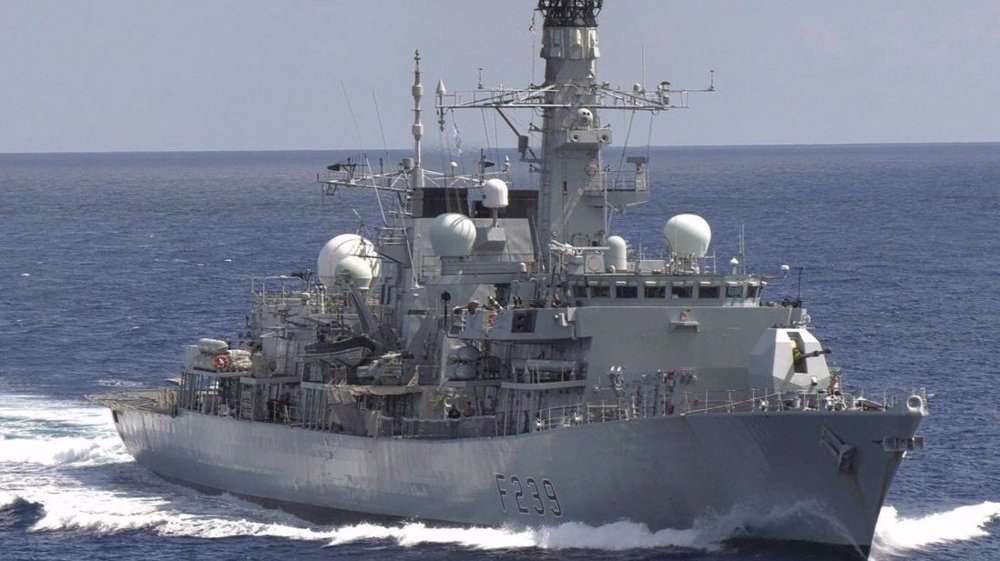
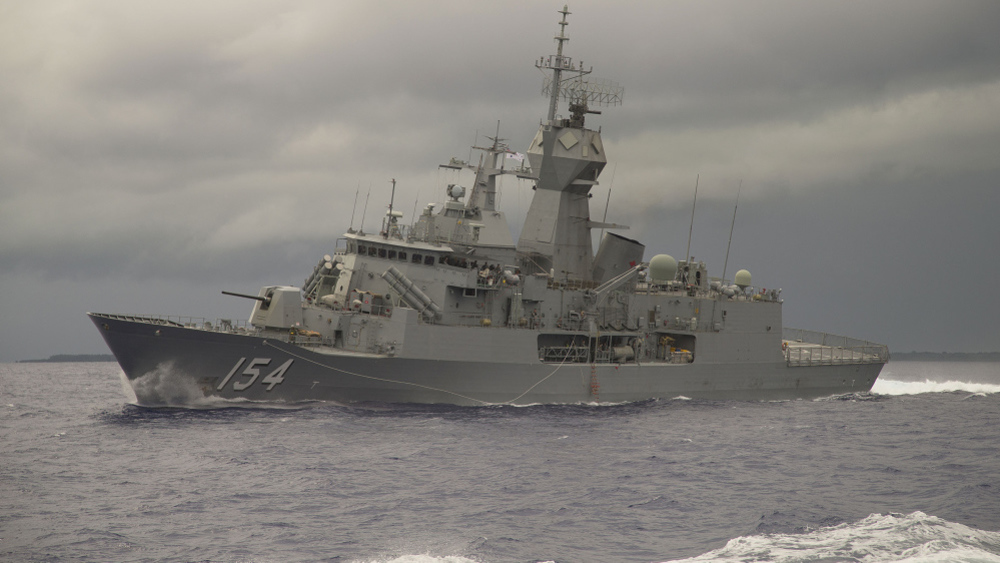
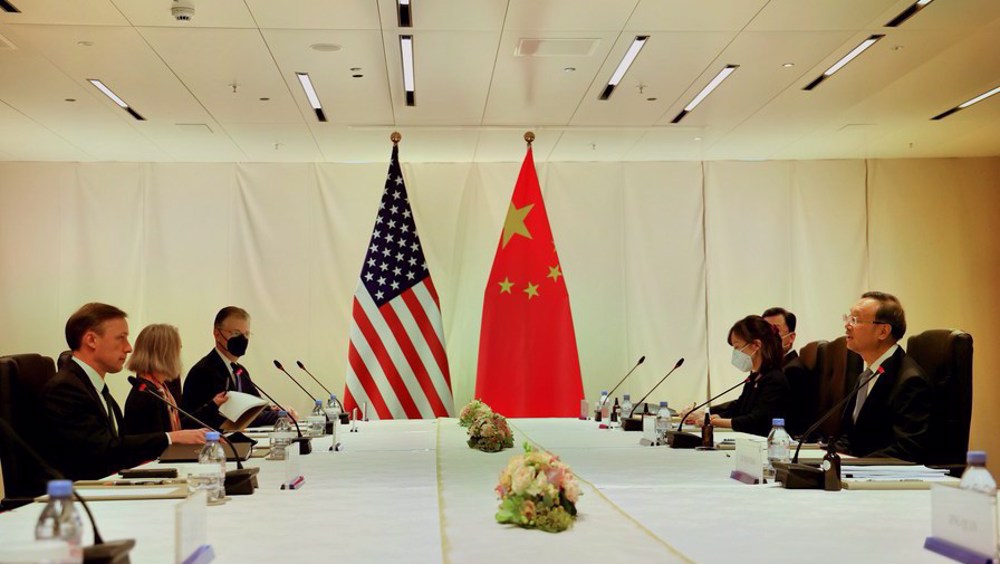
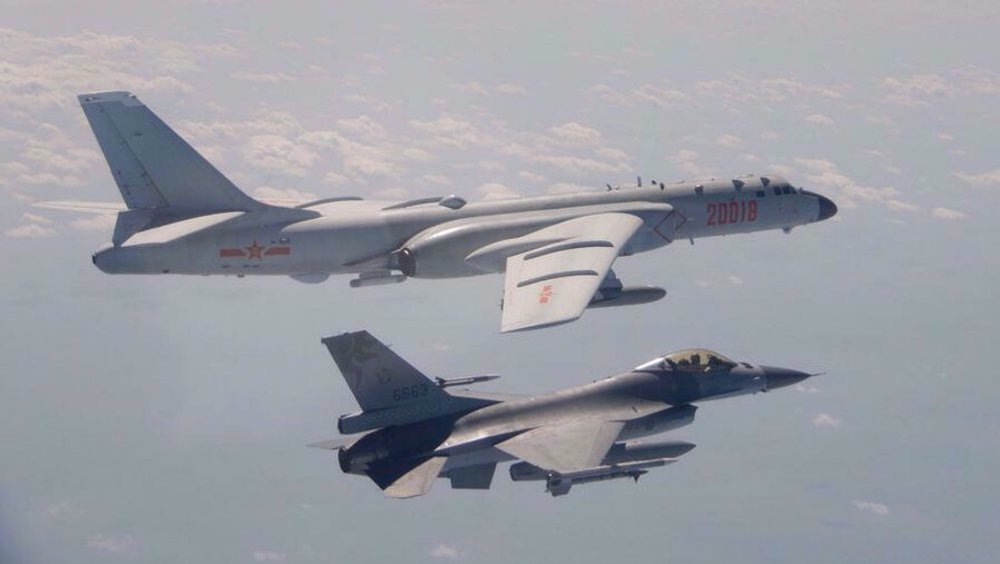
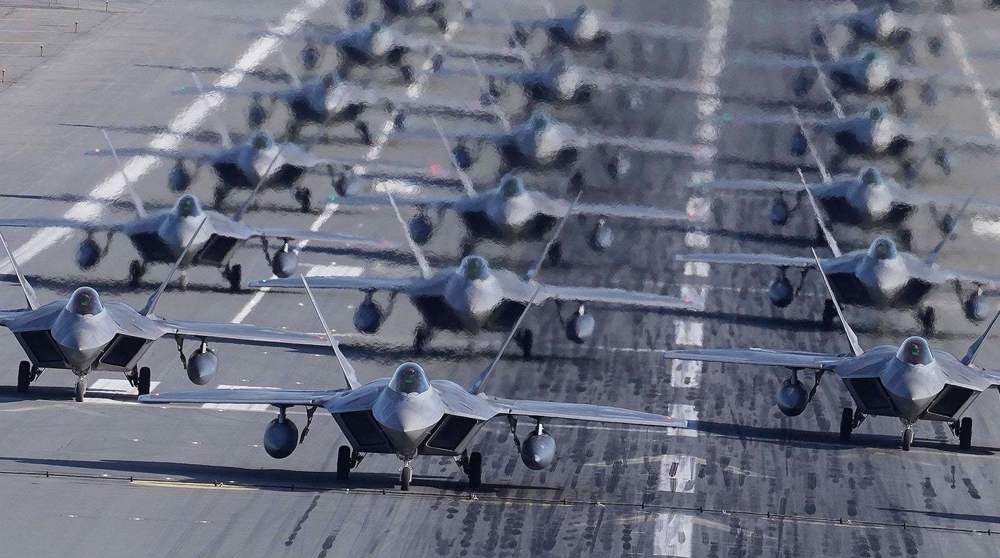
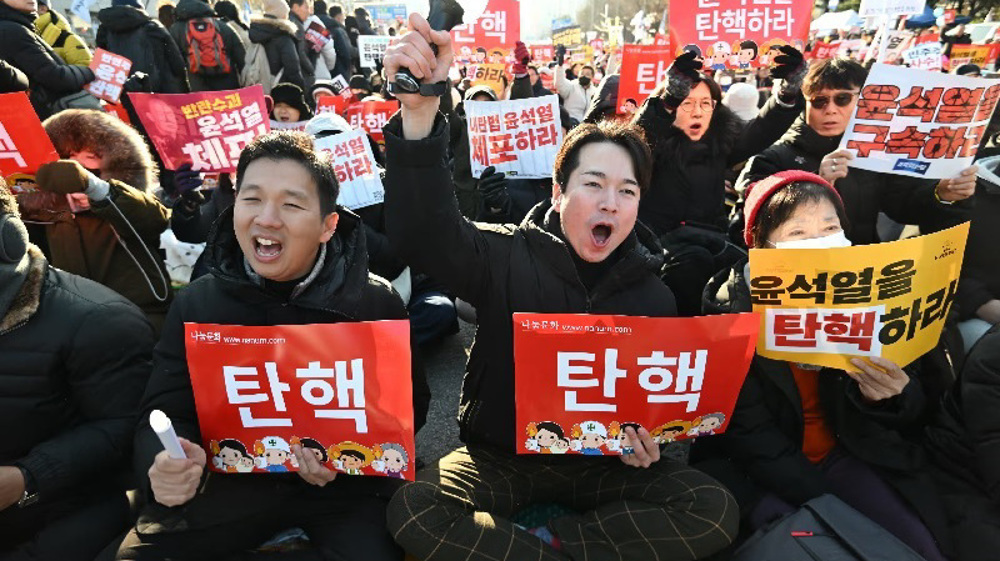

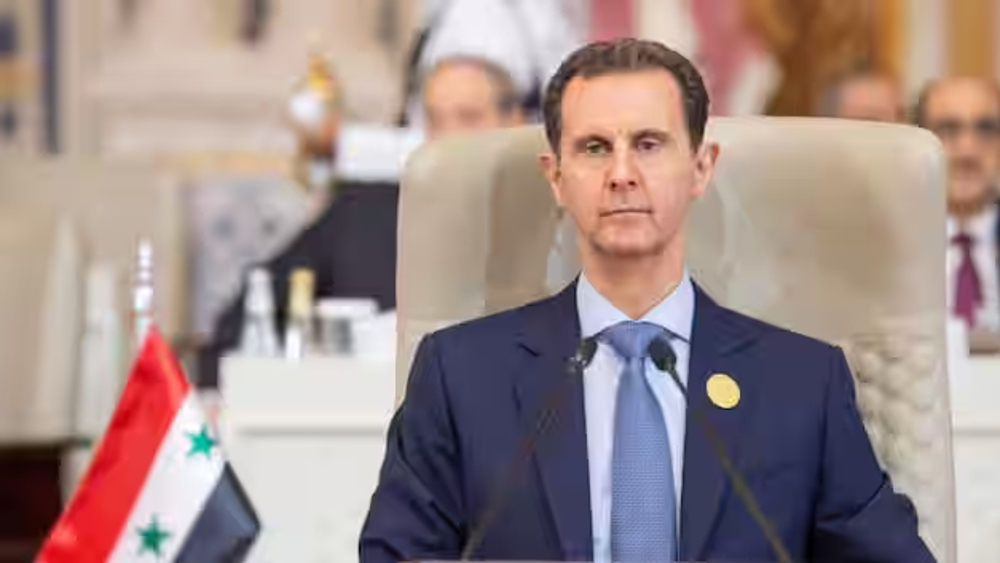




 This makes it easy to access the Press TV website
This makes it easy to access the Press TV website